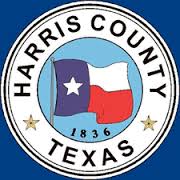It’s on the Democratic side in Harris County. This should come as a surprise to no one.
The crowded Harris County Democratic primary field reflects a new reality in Houston politics: With the county turning an even darker shade of blue in 2018, many consider the real battle for countywide seats to be the Democratic primaries, leading more candidates to take on incumbent officeholders.
“This is the new political landscape of Harris County. Countywide offices are won and lost in the Democratic Primary,” said Ogg campaign spokesperson Jaime Mercado, who argued that Ogg’s 2016 win “signaled a monumental shift in county politics” and created renewed emphasis on criminal justice reform now championed by other Democratic officials and Ogg’s opponents.
In the March 3 primaries, Ogg, Bennett, Sheriff Ed Gonzalez and County Attorney Vince Ryan — all Democrats — face at least two intra-party opponents each, while Democratic Commissioner Rodney Ellis has a primary challenger in former state district judge Maria Jackson.
Excluding state district and county courts, 10 of 14 Harris County Democratic incumbents have at least one primary foe. In comparison, three of the seven county GOP incumbents — Justice of the Peace Russ Ridgway, Precinct 4 Constable Mark Herman and education department trustee Don Sumners — have drawn primary challengers.
At the state level, Republicans from the Harris County delegation largely have evaded primary opponents better than Democrats. All but three GOP state representatives — Dan Huberty, Briscoe Cain and Dennis Paul — are unopposed.
On the Democratic side, state Sen. Borris Miles and state Reps. Alma Allen, Jarvis Johnson, Senfronia Thompson, Harold Dutton, Shawn Thierry and Garnet Coleman each have primary opponents.
Overall, the 34 Democratic incumbents seeking re-election to federal, state and county seats that cover at least a portion of Harris County — not including state district and county courts — face 43 primary opponents. The 22 Republican incumbents have 10 intra-party challengers.
It should be noted that a few of these races always draw a crowd. Constable Precincts 1, 2, 3, and 6 combined for 22 candidates in 2012, 21 candidates in 2016, and 17 this year. Three of the four countywide incumbents – DA Kim Ogg, Sheriff Ed Gonzalez, and Tax Assessor Ann Harris Bennett – are in their first term, as is County Commissioner Rodney Ellis. There are fewer Republican incumbents to target, so Dem incumbents get to feel the heat. The bigger tell to me is that Republicans didn’t field candidates in nine District Court races. As I’ve said ad nauseum, it’s the judicial races that are the best indicator of partisan strength in a given locale.
The story also notes that the usual ideological holy war in HD134 is on hold this year – Greg Abbott has endorsed Sarah Davis instead of trying to primary her out, and there’s no Joe Straus to kick around. Republicans do have some big races of their own – CD07, CD22, HD26, HD132, HD138, County Commissioner Precinct 3 – but at the countywide level it’s kind of a snoozefest. Honestly, I’d have to look up who most of their candidates are, their names just haven’t registered with me. I can’t wait to see what the finance reports have to say. The basic point here is that we’re in a new normal. I think that’s right, and I think we’ll see more of the same in 2022. Get used to it.


On the GOP side, it’s definitely CD13 to replace Mac. I’ll have a blog post in a week or so.
Pingback: January 2020 campaign finance reports: State House, part 1 – Off the Kuff